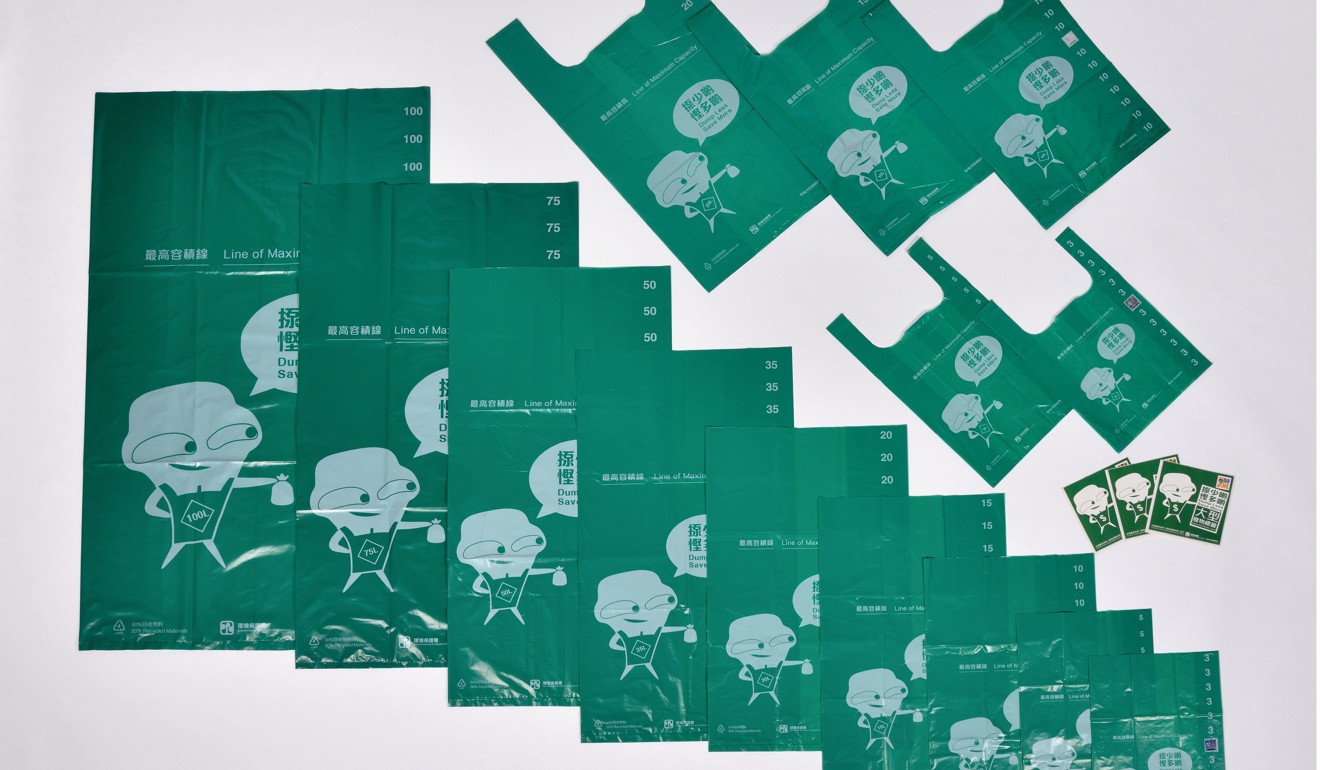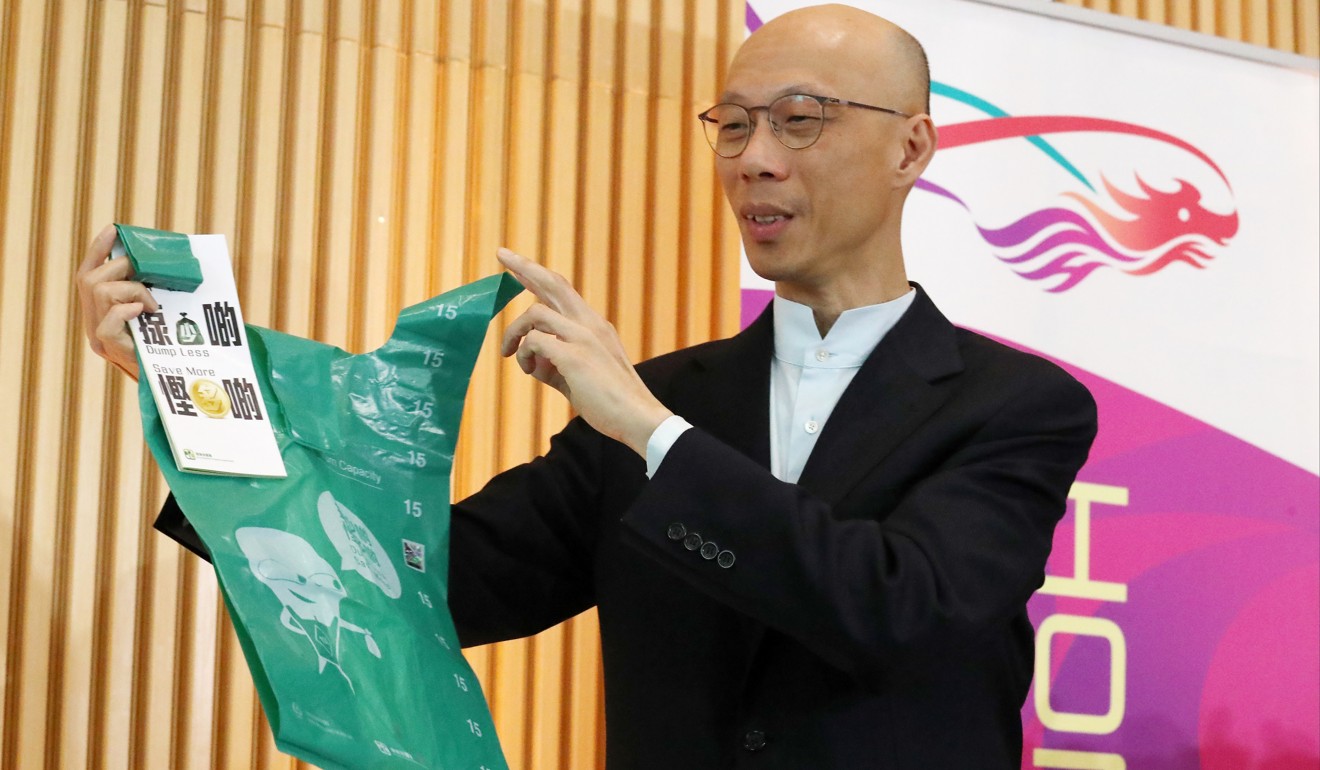
Rubbish sacks which double up as shopping bags to go on sale for Hong Kong waste charging
Supermarkets to stock designated bags which residents will be required to use for garbage disposal, as officials look to clamp down on rubbish generation
Rubbish sacks which double up as shopping bags will be introduced for Hong Kong’s waste charging scheme in 2019 and available to buy in supermarkets, the government said on Monday.
The Environmental Protection Department said it would discuss with retailers making the designated bags available at major chains, as officials look for ways to reduce waste in the city.
It said a similar plan was set to go live in Taipei to reduce plastic consumption by preventing citizens buying other bags with which to throw away their rubbish.

“We will be learning from Taipei’s experience in introducing the environmentally friendly dual-use bag,” a department spokeswoman said.
Under the Hong Kong government’s waste charging proposal, from 2019, rubbish producers will be charged per bag.
Hong Kong’s waste charge will reduce our rubbish levels, never mind the naysayers
Residential buildings, village houses and street-level shops that use government refuse collection services will be required to buy one of nine types of rubbish bag of varying size, priced at an average of 11 Hong Kong cents per litre. The cheapest, smallest bag will be 30 cents, at three litres, while the biggest, at 100 litres, will cost HK$11.
Oversized items that cannot fit into any of the nine bags must be tagged with a label that will cost HK$11.
Sold in packs of 10, the bags will be available at 4,000 points of sale including convenience stores, post offices, service stations and special vending machines.

Shoppers already need to pay 50 cents for each plastic shopping bag they use under the city’s plastic bag levy.
It was unclear how much each dual-use bag, which will be introduced separately, would cost.
Angus Ho Hon-wai, executive director of environmental group Greeners Action, said the dual-use bags needed to be more expensive than the other designated garbage bags to prevent overuse.
Lawmakers urge incentives, not only punishments, in Hong Kong’s waste charging scheme
He said the plastic bag levy had effectively weaned Hongkongers off plastic bags for shopping, with most nowadays bringing their own and only using plastic ones if they forgot.
If dual-use bags were cheaper than the other nine, shoppers would stop bringing their own and start buying dual-use ones on every shopping trip, he said.
Waste charging should not replace the plastic bag levy
Ho suggested a price of HK$1.60 – the combined cost of a 10-litre garbage sack and a plastic shopping bag.
In Taipei, from the beginning of next year, all retailers will be required to replace plastic shopping bags with dual-use bags.
“Waste charging should not replace the plastic bag levy,” Ho said. “We do not wish to see a return to the old habit of using plastic bags for shopping.”
Last month Secretary for the Environment Wong Kam-sing said the government had been drafting a waste charging bill and would table it to Hong Kong’s legislature before the end of this year.
Municipal waste disposal has increased 80 per cent in the last 30 years, far outpacing the 34 per cent growth in the population. Wong said he believed charging would help induce a behavioural change and drive the city towards his target of slashing per capita municipal solid waste by 40 per cent before 2022.

